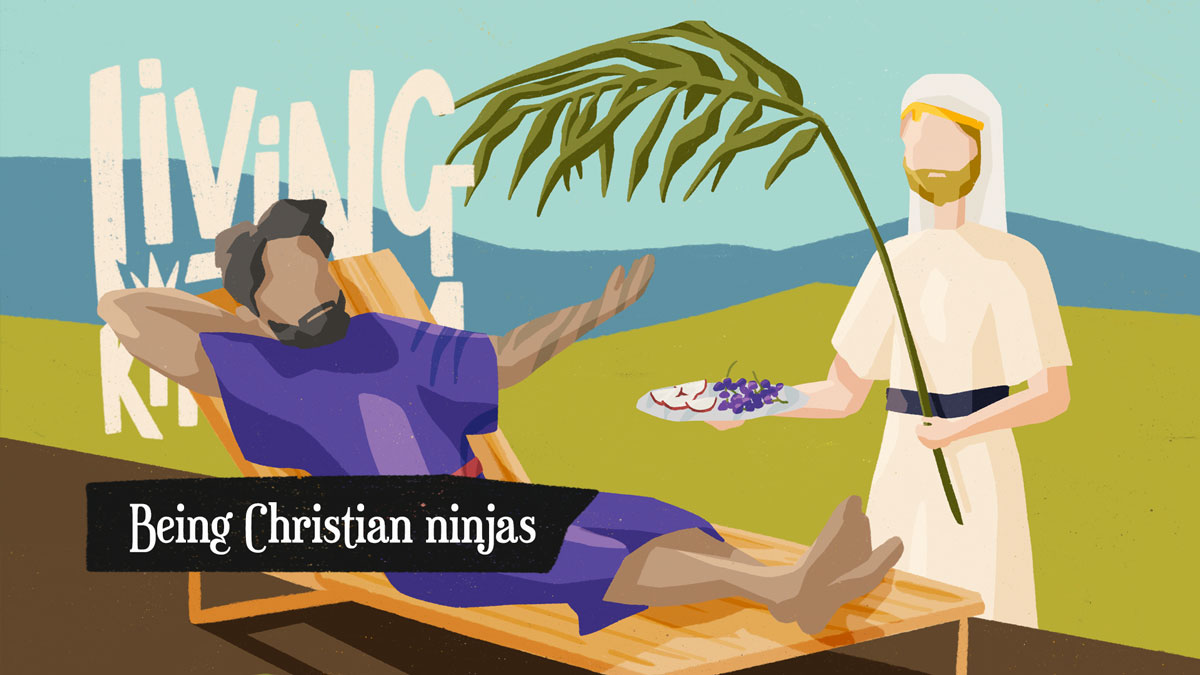Master and his servant
“Suppose one of you has a servant ploughing or looking after the sheep. Will he say to the servant when he comes in from the field, ‘Come along now and sit down to eat’? Won’t he rather say, ‘Prepare my supper, get yourself ready and wait on me while I eat and drink; after that you may eat and drink’? Will he thank the servant because he did what he was told to do? So you also, when you have done everything you were told to do, should say, ‘We are unworthy servants; we have only done our duty’” (Luke 17:7–10).
I have spent about nine years being an administrative assistant and personal assistant to teams and managers at various companies. It is an assistant’s job to help the team or manager be successful. We do all the small and large tasks that our colleagues or managers don’t have time to do and make sure the cogs keep turning.
If you look at the job description for an assistant, it can seem daunting because there is so much listed under “duties”—the assistant helps with anything and everything. There is one saying that I love: “administrative assistant—only because full-time multi-tasking ninja is not an actual job title”.
I must admit, I loved being an assistant, I enjoyed the varied work and the pleasure of seeing the team or manager achieve their goals. Although at times it was stressful and there were some early mornings and late nights, I found joy in checking off my to-do list and completing tasks.
Even though I loved what I did, sometimes I would feel like I was underappreciated. Yes, I was doing my job and getting paid for it, but I wanted some praise. I was helping the team or manager be successful, but I felt like I was being ignored or that others were being praised above me.
Humility is not my strongest suit and as a human I tend to think I deserve much more than I really do.
Over the years I have had to eat some humble pie and really assess myself to see if my feelings were substantiated. Most of the time they were not. It was just me being prideful, thinking that I deserved more when I was just doing my job.
My struggle with humility doesn’t stop at work—it also goes into my personal life, especially in my walk with God. Although I know in my mind that we are saved through faith and not by our own works (Ephesians 2:8,9) there are times I feel smug knowing I have followed the Word of God. Sometimes this bubbles over into me believing that I deserve more because I am such a “good Christian”. I want to be praised or be rewarded instantly for a job well done.
Jesus told a parable about this human condition in Luke 17:7-10. “The master and his servant” is not a parable that is well known, and we do not see it in children’s books, but it has an important message.
The parable talks about servants, their duty to their master and how they are expected to be treated. In Jesus’ time, and throughout the Bible, servants were common. The word slave could often be used instead of servant. You could be a servant if you were born to parents who were servants; servants were often captured during war; and sometimes people sold themselves into servanthood, if it would give them a better life or to pay off debts.
Throughout the Bible, God calls the people of Israel His servants; writers refer to themselves as servants of God; and some major characters, such as Joseph, Esther and Nehemiah, were actual servants or slaves.
Essentially, a servant belongs to their master and must do what they are told, without complaint, most times without payment and definitely without gratitude from their master. It is their duty as a servant to obey.
This short parable that Jesus told would have made perfect sense to the disciples as it was a common practice in those days. A servant was not there to be heard or praised, they were there to work and do the master’s bidding.
Unfortunately, in 2021, there are some places around the world where slaves and servants still exist. However, the consensus is that freedom is a human right, and most people would disagree with depriving someone of their liberty.
While some people today work as live-in nannies or butlers, or in some cultures, young people may live and serve another family to go to school or to build connections, there are still freedoms to leave or make their own decisions.
For most of us, the concept of being a servant is very far removed. The majority of people living today would agree that people cannot belong to us, and we do not belong to anyone. We are free, we do what we want and expect to be rewarded when we follow the rules.
But when we make a decision to be followers of God, we are giving ourselves to Him—we don’t just give Him our time or money but our whole self. We become His servants and He is our Master. In Romans 6:22, Paul says that when we decide to follow God, we are set free from sin, but we become slaves to God.
It can be a difficult notion for us who have lived free lives, but even Jesus called Himself God’s servant. In Mark 10:45 Jesus said He came not to be served but to serve. 2 Corinthians 8:9 says Jesus was rich but became poor for us. Paul sums it up well in Philippians 2:5-8, where He says even though Jesus was equal to God, He took on the form of a servant and became a human: “he humbled himself and became obedient to the point of death”.
Every time I read these verses I pause in awe, because it puts into perspective how I think I should be treated versus how Jesus chose to be treated. Jesus, the Son of God, the Alpha and the Omega, the King of Kings and Lord of All, humbled Himself and chose to be a servant of God.
Jesus told the parable of “the master and his servant” to show us how we should be living as Christians. We are God’s servants and shouldn’t expect to be thanked or treated better just because we are doing what He asks.
In the Bible, God has given us a job description that as Christians we are to follow; it is our duty. He has told us to love our neighbours (Matthew 22:39), love our enemies (Matthew 5:44), turn the other cheek (Matthew 5:39), do not judge (Matthew 7:1), do not be greedy (Luke 12:15), to look after the poor, cripple, lame and blind (Luke 14:13), make disciples and baptise people (Matthew 28:19), watch our tongues, be slow to speak and slow to anger (James 1:19,26) and to be kind and tenderhearted (Ephesians 4:32).
This list contains only a few of all the things the Bible shows us to help us be better people, better Christians and to show God’s love to the world.
At times it can seem like a big task, and it feels like we have to be Christian ninjas to do all that God asks of us. When we work hard to go against our human nature and obey God, often we feel like we should be rewarded instantly. But as servants of God, we are just doing our job.
In Romans 6:22, when Paul says that we become slaves to God, that is not the end of the sentence. He goes on to say that our reward is eternal life, which is the ultimate reward we could ask for.
As we go about our daily lives let us humble ourselves as Jesus did and be servants of God, remembering that our reward is not immediate, but we will certainly receive the best reward in the life to come.
Lorraine Atchia is the communications officer at the Australian Union Conference.







